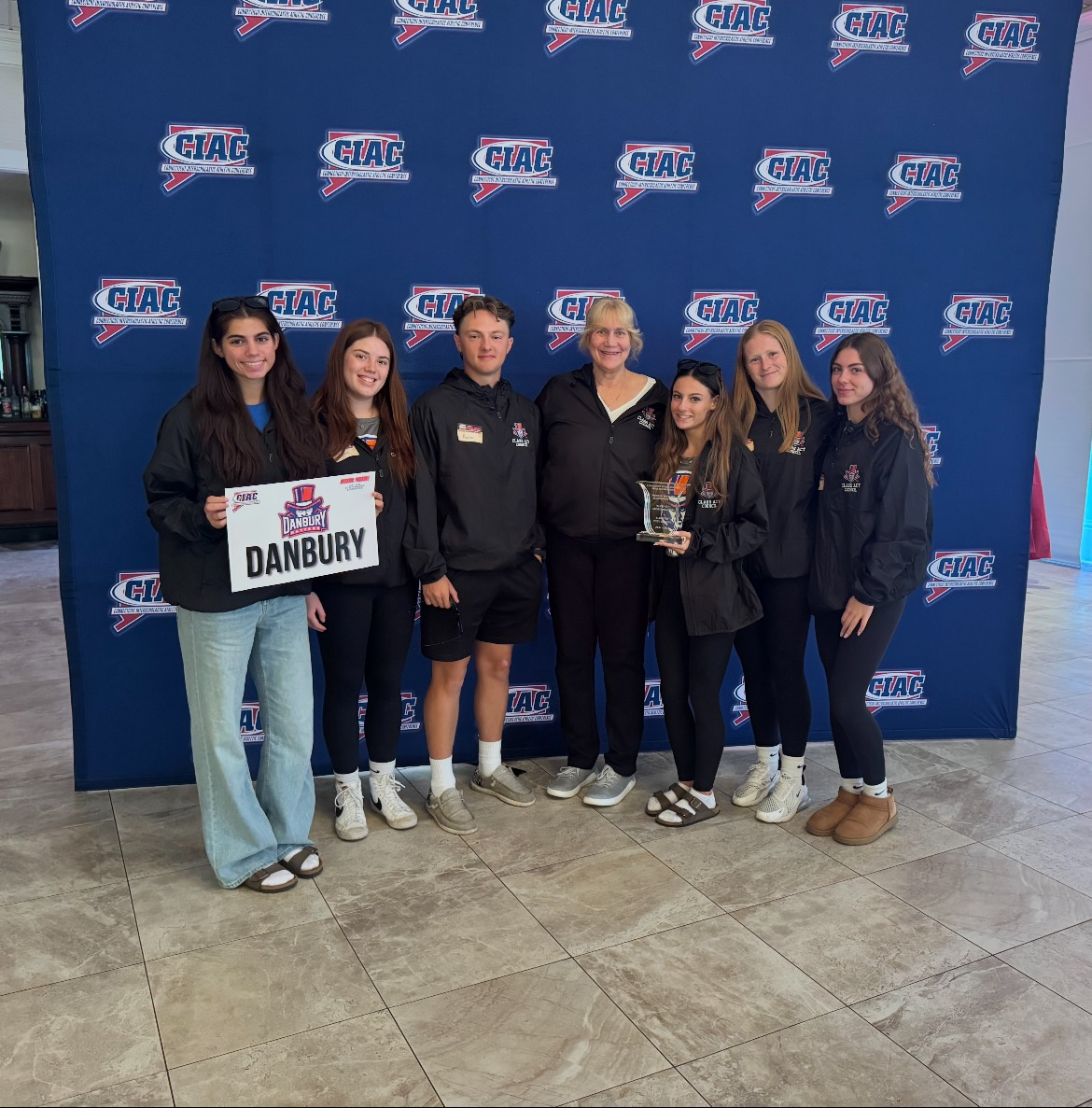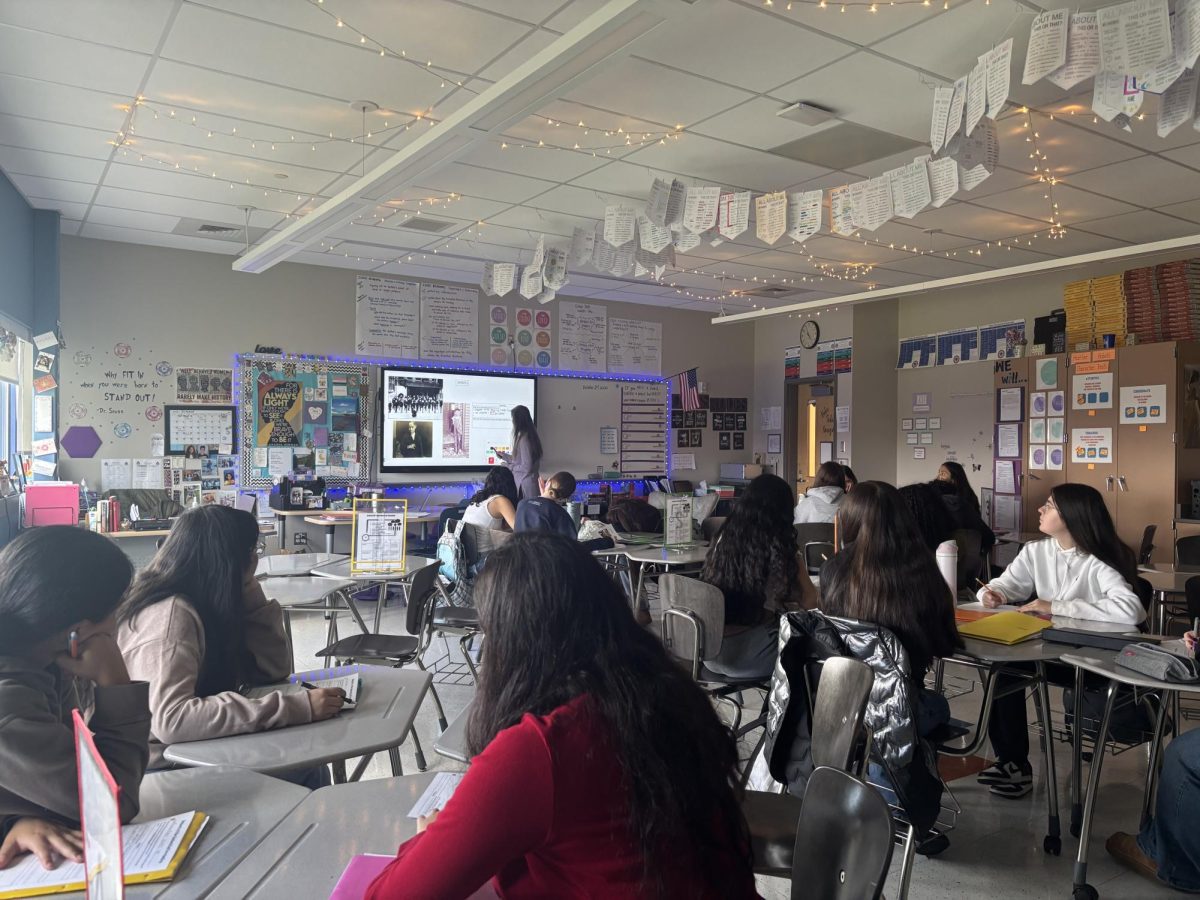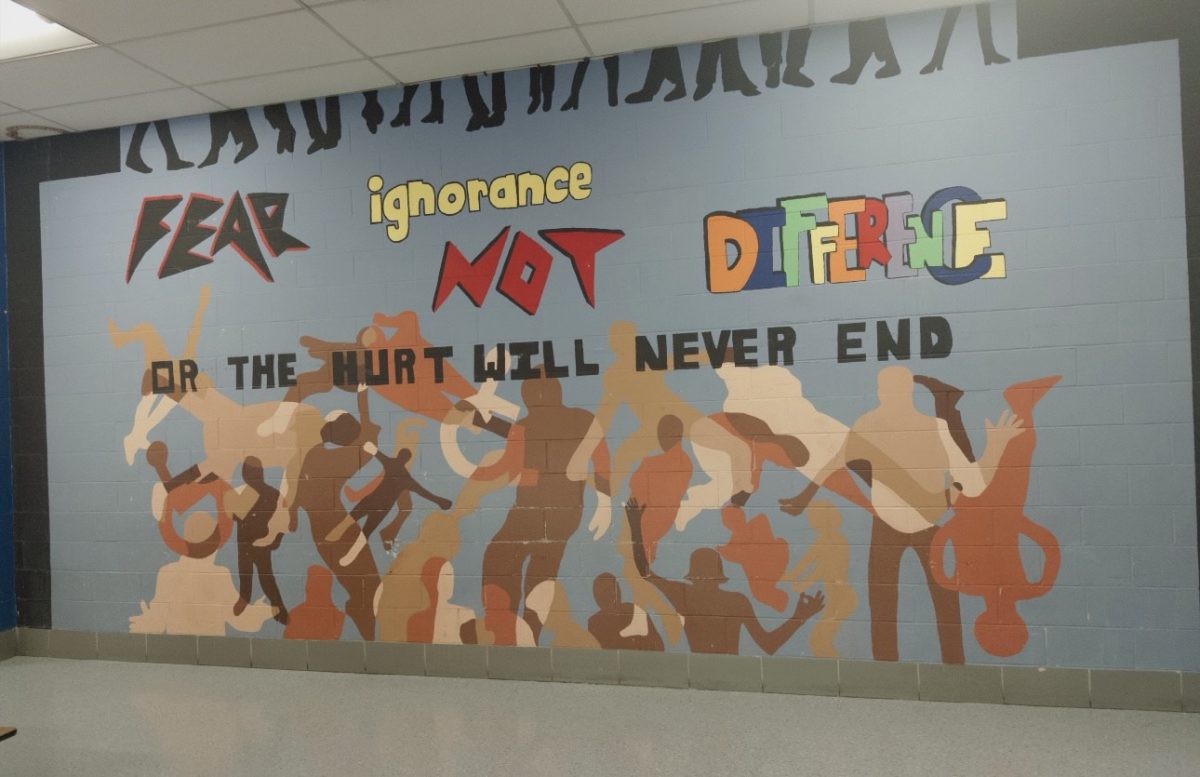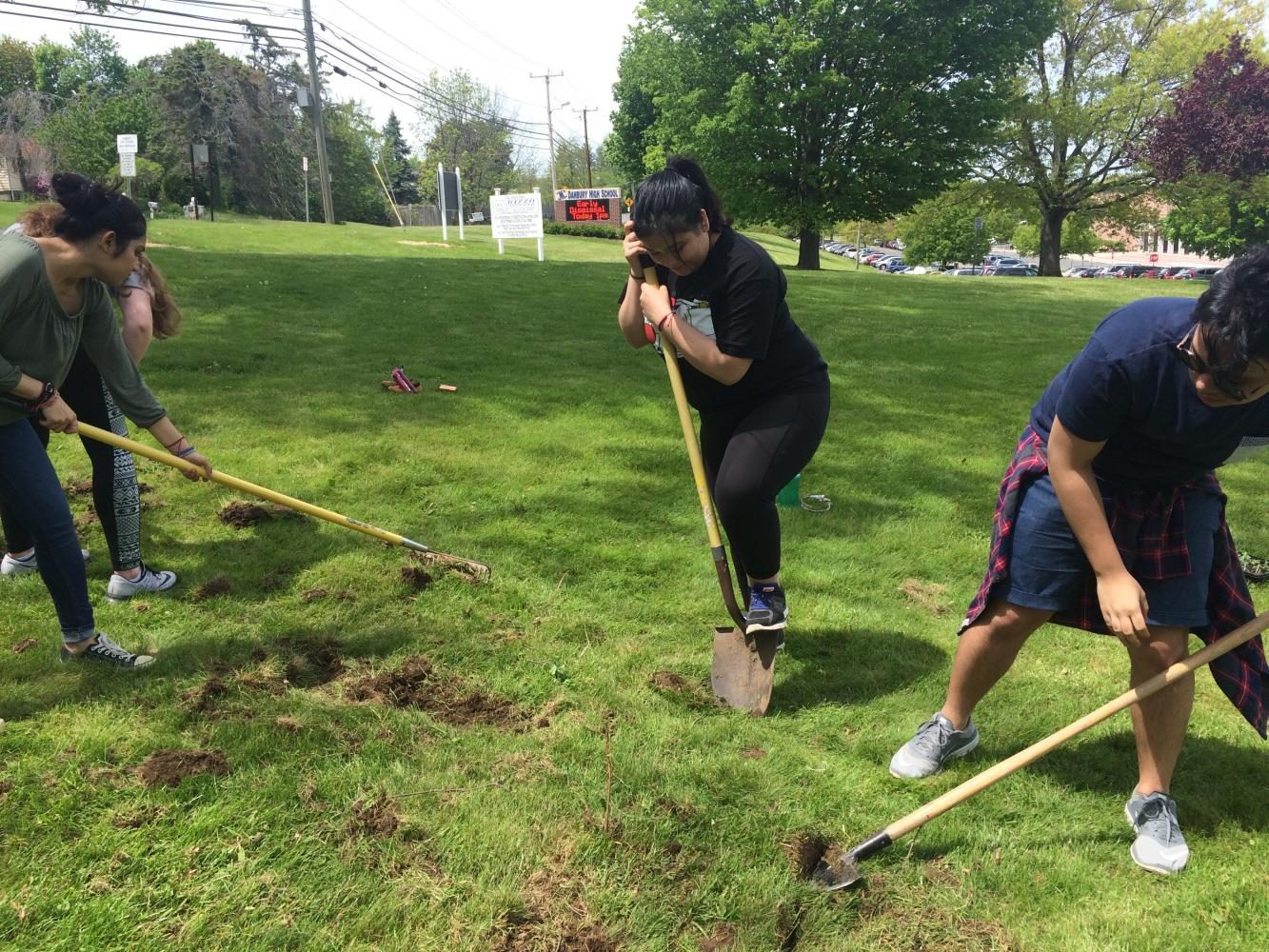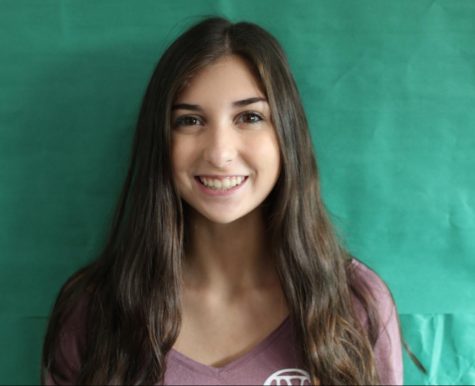AP Human Geography students work to feed Danbury’s hungry
Simone’s group of seniors Micah Hall, Jessica Queiroz, Palak Patel, and Emily Broggy work on their garden outside of DHS.
May 18, 2017
The classroom is all about preparing students for life outside of it and though some teachers work assiduously to make sure of this, one teacher and her new program stand out in making sure her kids work on something other than just making their grades better.
Christine Riter is an AP Human Geography teacher and this year, she started requiring her students to participate in the CollegeBoard start-up program, AP with WE Service.
The program is intended to “create an opportunity for students to consider their classroom work and how it applies to the real world, while working closely with their peers to address social issues,” according to the CollegeBoard website.
“It’s based on service learning,” Riter says about AP with WE, “Which is recognizing an issue in the community and learning the root causes of the problem.” She says it’s more than just random community service, it’s service with the purpose of actually solving the problem, “instead of just putting a bandaid on it.”
Riter first became interested in service learning when she taught in Pennsylvania and received a grant from UPenn to pursue the program with her students. Since then, the experience has become so important to her. “It shows students how they can impact society and how they can work to make the world a better place,” she says.
During the project, APHG students are working to address hunger issues within the Danbury community by either educating the public, raising funds for those lacking the ability to maintain a healthy diet, or performing service activities that directly target the problem.
Though it’s not always seen, throughout Connecticut and even in Danbury, there are people who are starving. “ Danbury is considered a Food Desert, a place where people do not have easy access to rich, whole foods and grains,” Says senior Tyler Simone.
One student, senior Heidy Coronel, is working with Pembroke Elementary School to battle the food insecurity present in their school.
“Noticing how integral food is to the development of children, my group is raising food donations for the CT Food bank which allocates lunch bags to low income students to take home during the weekends,” Coronel says.
Coronel’s project required her to work closely with the social worker at Pembroke, Anne Shields, as well as the CT food bank to help the students who receive insufficient food at home.
“i love the energy that high schoolers bring when they support the elementary schools, [the high schoolers] are like rockstars to our students, they look up to them,” says Shields. “What Heidy’s doing is going to be really beneficial for the students because so many of them, when school’s not in session are what we call food insecure. I really appreciate everything she’s done.”
“This program gives students awareness of what’s actually going on and the issues in our community,” says Riter.
Every student had to focus on a specific aspect of hunger in the Danbury area and in order to determine how they would do their part in resolving the issue, they had to do a copious amount of research. During this process they discovered the various foundations that people don’t hear about and noticed the numerous areas in Danbury alone in which the people living there do not have enough food.
“On a city wide level more than 50% of students are on free/reduced lunches. We have overcrowded Dorothy Day lines. Children go hungry everyday,” says Coronel. “Our project will help the CT Food bank allocate more meals to the children over the summer who do not receive the breakfasts and lunches during the school year. It will also help the community understand and become aware that if we want children to succeed they must be given the tools- the food- to do so.”
The students have working now for about a month on these projects, in hopes of ending food insecurity in Danbury. In order to do this students are required to either educate the community, fundraise for either their own cause or an organization, or create and participate in a proactive service project.
Some students have chosen to plant gardens that promote healthy lifestyle choices, others are travelling to elementary schools to educate the kids on wastefulness and the importance of food security and others are hosting a dodgeball tournament as a fun way to raise funds.
Simone and his group members have chosen to plant a community garden at DHS. “This project will provide the community with access to fresh foods that will be planted on the Danbury High School grounds,” says Simone, “This will decrease food insecurity and will give people the opportunity to consume healthy foods.”
Riter says, “The students have come up with really great ideas that will definitely have an immediate impact on the community.”
Not only is AP with WE important for communal improvement, but it’s also beneficial for students’ preparation for their AP Human Geo exam on May 12.
“We’ve studied hunger and food production in class,” Riter says, “and now they’re seeing how people in local areas are being affected by it; bringing real life into the classroom.”
Riter says that service learning gives education a purpose, “it makes it actually exist.”
Simone says, “Based on the project, we are applying concepts that we have learned in the classroom like food production, agricultural development, and business economics, and the fact that we’re starting before the exam is really going to help us be aware of real-life applications.”
Coronel says, “This project has supplemented my interest in working as a community organizer or public administrator by getting to meet the children at Pembroke and understanding their needs first hands. I always was aware of the hunger issue, but I ignored the fact that children bear the developmental burden the most. Now witnessing the power of a lunch and a book on the progression of children in Danbury has given me a new purpose- Secretary of Education, maybe Mayor of Danbury one day. These are the years where students need the most help.”


